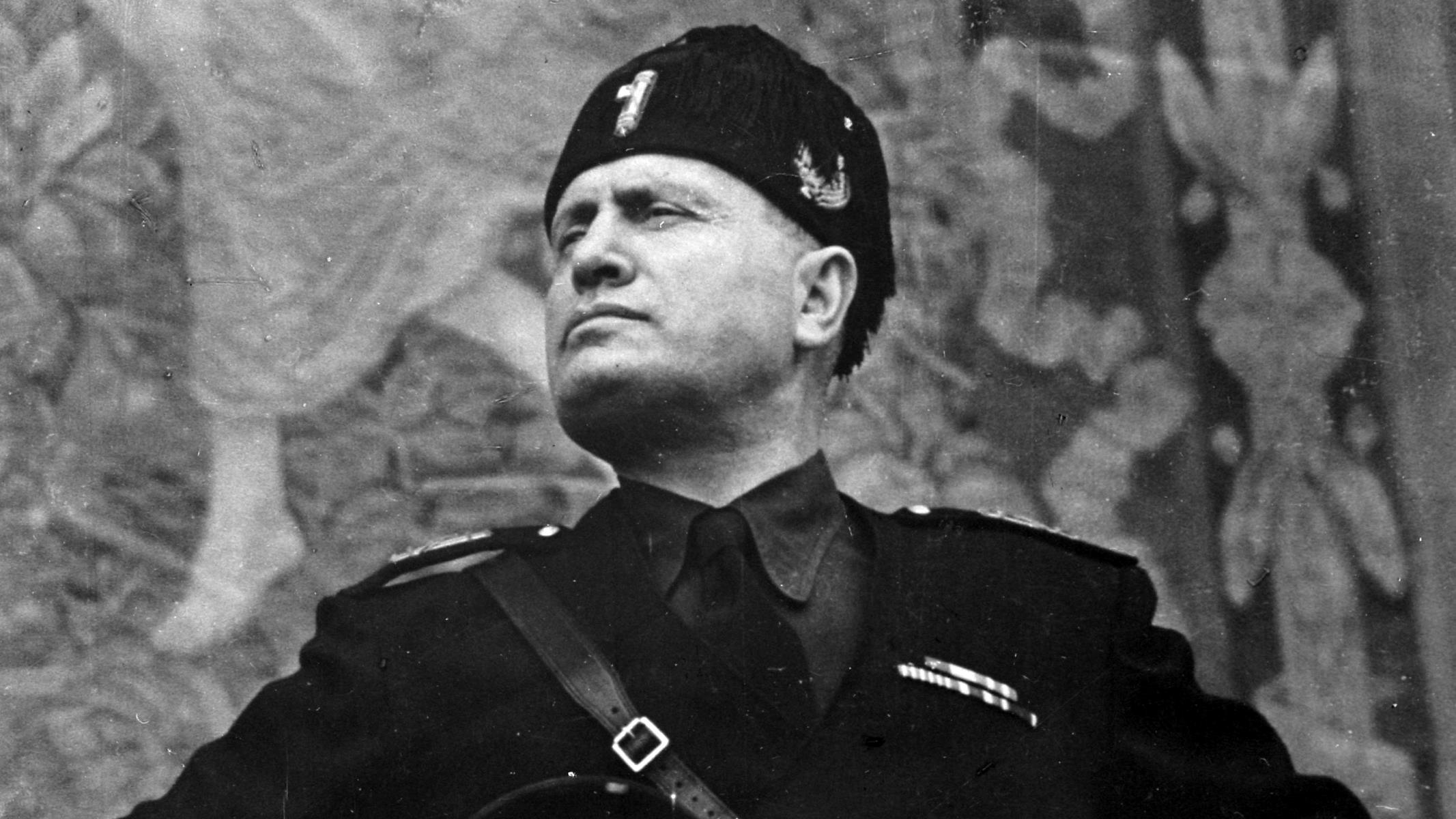
Benito Mussolini, the enigmatic figure who rose to power as Italy’s dictator from 1922 to 1943, continues to be a subject of fascination and study. While most people are familiar with his association with Fascism and his alliance with Adolf Hitler during World War II, there are numerous surprising facts about Mussolini that many might not know. This article will delve into the lesser-known aspects of Mussolini’s life and rule, shedding light on his early years, political ideologies, personal life, and more. From his stint as a newspaper editor to his passion for poetry, these facts will provide a unique glimpse into the man behind the dictator, challenging some of the widely held perceptions about Mussolini. So, prepare to explore the intriguing and unexpected sides of this controversial historical figure and be prepared to be surprised!
Key Takeaways:
- Mussolini started as a socialist but became a dictator. His alliance with Hitler led to Italy’s downfall in World War II, and he met a tragic end.
- Mussolini’s rule was marked by censorship, persecution of opponents, and economic isolation. His life serves as a cautionary tale against the dangers of totalitarianism.
Mussolini was initially a Socialist.
Contrary to popular belief, Benito Mussolini began his political career as a fervent socialist. In his early years, he was a strong advocate for workers’ rights and expressed disapproval of capitalism. However, his views would later shift dramatically as he embraced Fascism.
Mussolini founded the National Fascist Party.
In 1919, Mussolini founded the National Fascist Party in Italy. The party promoted radical nationalist policies and aimed to establish a totalitarian regime. This marked the beginning of his rise to power and his transformation into an authoritarian leader.
Mussolini served as Italy’s Prime Minister for over 20 years.
From 1922 until 1943, Mussolini held the position of Prime Minister, making him one of the longest-serving leaders in Italian history. During his time in power, he implemented various reforms and exerted strong control over all aspects of the government.
Mussolini formed an alliance with Hitler’s Germany.
In 1936, Mussolini formed the Rome-Berlin Axis, a political and military alliance with Adolf Hitler’s Germany. The alliance solidified their shared aims of expanding their respective territories and exerting dominance over Europe. Mussolini’s partnership with Hitler would ultimately have disastrous consequences for Italy.
Mussolini declared himself the “Duce” of Italy.
After coming to power, Mussolini took on the title of “Il Duce,” meaning “The Leader” in Italian. This title was a reflection of his desire to establish himself as the ultimate authority in Italy, similar to other dictators of the time.
Mussolini enacted strict censorship and propaganda measures.
As a totalitarian ruler, Mussolini exercised tight control over the media and implemented strict censorship laws. He utilized propaganda extensively to promote his fascist ideology and maintain his hold on power.
Mussolini’s regime actively persecuted political opponents.
Under Mussolini’s rule, political dissent was not tolerated. His regime imprisoned, tortured, and executed numerous individuals who were deemed to be opponents of the Fascist regime. This repression resulted in widespread fear and a climate of political repression in Italy.
Mussolini introduced a strict policy of autarky.
Mussolini implemented a policy of autarky, which aimed to make Italy economically self-sufficient and less reliant on foreign trade. However, this policy ultimately proved detrimental to the Italian economy, leading to a decline in industrial production and increasing the country’s economic isolation.
Mussolini’s alliance with Germany crumbled during World War II.
Despite initially aligning with Germany, Mussolini’s alliance began to weaken as Italy suffered numerous military defeats during World War II. In 1943, Mussolini was overthrown by his own government, and Italy switched sides to join the Allies in their fight against the Axis powers.
Mussolini’s life ended tragically.
Following his fall from power, Mussolini attempted to flee but was captured by communist partisans in northern Italy. On April 28, 1945, he was executed alongside his mistress, Clara Petacci. Their bodies were hung upside down in a public square in Milan as a symbol of retribution.
Conclusion
Benito Mussolini, the controversial Italian leader, left a lasting impact on history. Through his fascist regime, he reshaped Italy’s political landscape and initiated various economic and social reforms. However, there are several surprising facts about Mussolini that many may not be aware of. From his stint as a journalist to his admiration for Adolf Hitler, these lesser-known aspects of Mussolini’s life shed light on his complex character. Despite his charismatic leadership and ability to rally the masses, Mussolini’s reign came to a dismal end during World War II. His legacy remains a subject of debate, but his significance in shaping Italy’s history cannot be denied.
FAQs
Q: What was Mussolini’s early life like?
A: Mussolini was born on July 29, 1883, in Predappio, Italy. He grew up in a small town and had a difficult childhood, marked by his father’s political activism and his mother’s religious fervor.
Q: How did Mussolini rise to power?
A: Mussolini founded the National Fascist Party in 1921 and gradually gained support through his populist rhetoric and promise of restoring Italy to its former glory. In 1922, his supporters marched on Rome, leading to his appointment as Prime Minister by King Victor Emmanuel III.
Q: What were some of Mussolini’s policies?
A: Mussolini implemented various policies during his dictatorship, including the suppression of political opposition, the establishment of a totalitarian state, and the promotion of Italian nationalism. He also initiated programs to reshape the Italian economy, infrastructure, and education system.
Q: Did Mussolini have any allies?
A: Mussolini formed an alliance with Adolf Hitler and Nazi Germany, known as the Rome-Berlin Axis. They shared similar ideologies and cooperated politically and militarily, leading to Italy’s entry into World War II alongside Germany.
Q: How did Mussolini’s reign come to an end?
A: As World War II turned against Italy, Mussolini’s popularity dwindled. In 1943, he was overthrown by his own government, and Italy switched sides to join the Allied forces. Mussolini was captured, executed, and his body displayed for public viewing in Milan.
Q: What is Mussolini’s legacy today?
A: Mussolini’s legacy remains highly controversial. While some argue that he brought stability and modernization to Italy, others condemn his authoritarian rule and alliance with Hitler. His actions during Fascist Italy continue to be studied and debated by historians, political scientists, and scholars.
Benito Mussolini's life and legacy continue to fascinate historians and readers alike. His rise to power, controversial policies, and ultimate downfall offer valuable lessons about the dangers of unchecked authority. For those intrigued by influential figures who shaped history, exploring the lives of history's strongest and greatest warriors provides a captivating glimpse into the past. From ancient civilizations to more recent conflicts, these legendary fighters demonstrated unparalleled skill, courage, and strategic prowess on the battlefield. Delving into their stories reveals the unique circumstances and personal qualities that propelled them to greatness.
Was this page helpful?
Our commitment to delivering trustworthy and engaging content is at the heart of what we do. Each fact on our site is contributed by real users like you, bringing a wealth of diverse insights and information. To ensure the highest standards of accuracy and reliability, our dedicated editors meticulously review each submission. This process guarantees that the facts we share are not only fascinating but also credible. Trust in our commitment to quality and authenticity as you explore and learn with us.


